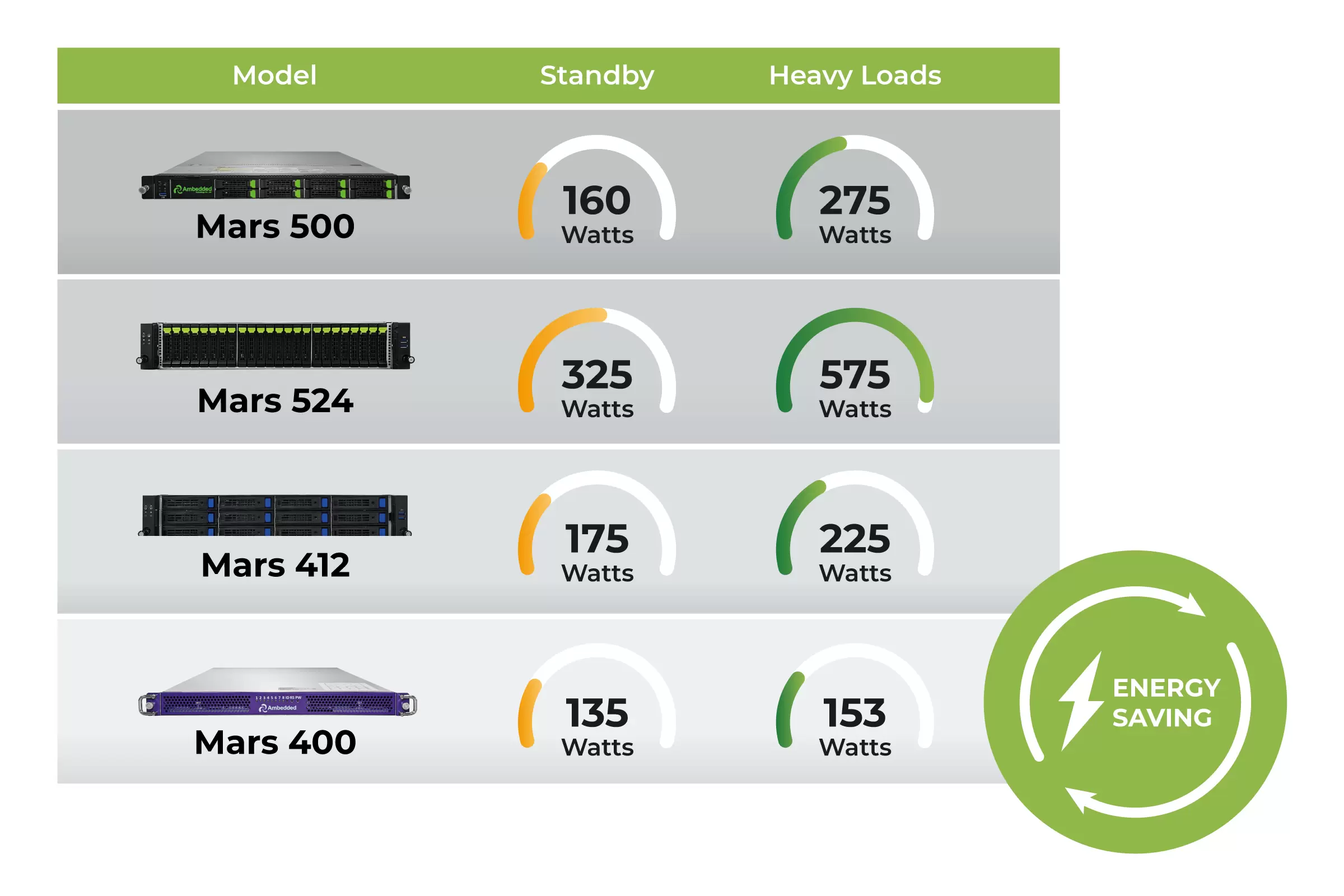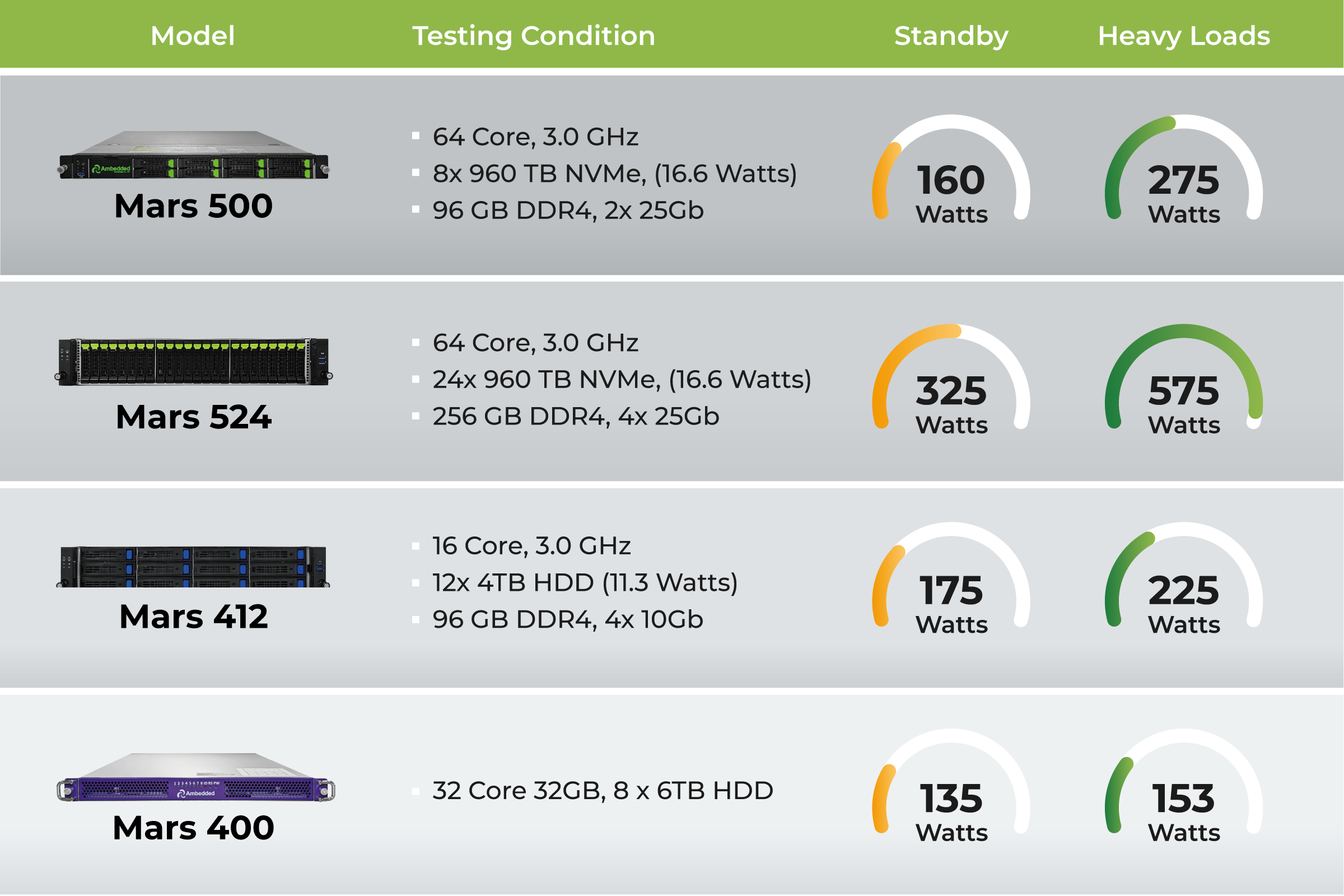
Embracing Ceph Storage on Low Power Consumption Servers
In the dynamic landscape of modern datacenters, optimizing energy efficiency and minimizing operational costs have become paramount concerns for businesses. Enter the low power consumption server, a transformative solution that offers a myriad of benefits when paired with Ceph storage technology. Embracing the marriage of Ceph with energy-efficient server hardware not only unlocks substantial cost savings and reduces environmental impact but also empowers datacenters with scalable, reliable, and high-performance storage solutions to meet the evolving needs of data-intensive applications.
Here we will explore the compelling advantages of employing low power consumption servers to host Ceph storage, ushering in a new era of efficiency and resilience in the realm of datacenter management.
Energy Efficiency -
Low power consumption servers are designed to use less electricity, resulting in reduced energy costs for running and cooling the datacenter. As datacenters consume massive amounts of electricity, using energy-efficient hardware like low-power servers helps in minimizing operational expenses.
Cost Savings -
Lower power consumption translates to cost savings in terms of electricity bills. Over time, these savings can be significant, especially for large-scale datacenters that operate 24/7.
Environmentally Friendly -
Datacenters are major consumers of energy, and by using low power consumption servers, the overall carbon footprint of the datacenter is reduced. This aligns with environmental sustainability goals and demonstrates corporate responsibility in mitigating the impact on the environment.
Scalability -
Ceph is a distributed storage system that allows seamless scalability. By using low power consumption servers, datacenters can efficiently expand their storage capacity without incurring significant increases in power consumption and cooling requirements.
Redundancy and Data Protection -
Ceph's distributed nature ensures data redundancy and fault tolerance. Running it on low power consumption servers doesn't compromise data integrity but enhances it by providing the ability to maintain multiple copies of data across different low-power nodes.
Heat Reduction -
Low power servers generally produce less heat, which results in a reduced need for cooling infrastructure. This indirectly contributes to additional energy savings and helps maintain a stable operating environment within the datacenter.
Increased Density -
Since low power servers typically require less space and cooling infrastructure, datacenters can accommodate a higher density of servers in the same physical footprint. This allows for better utilization of available space and increases the overall efficiency of the datacenter.
Reliability and Uptime -
Ceph's distributed architecture and the use of low power servers help improve overall system reliability. With data distributed across multiple nodes, the datacenter can remain operational even if individual servers experience failures or maintenance downtime.
In summary, running Ceph storage on low power consumption servers offers a win-win situation for datacenters. It not only reduces operational costs and environmental impact but also provides scalable, reliable, and efficient storage solutions for handling large amounts of data in modern datacenter environments.

